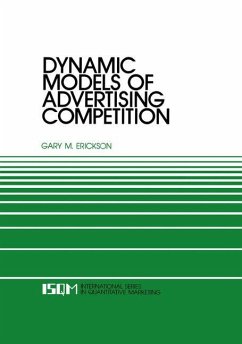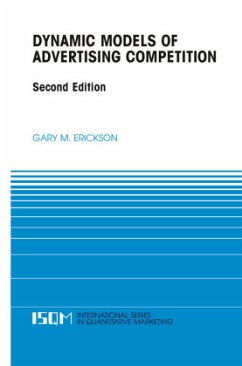
Research traditions in marketing
Versandkostenfrei!
Versandfertig in 1-2 Wochen
176,99 €
inkl. MwSt.

PAYBACK Punkte
88 °P sammeln!
Divergence: A Source of Creative Thinking The outstanding job accomplished by Bernard, Gary, and Gilles is really praiseworthy: not only did they succeed in completing within a remark ably short span of time the editing of the contributions to the conference that marked the 20th Anniversary of the European Institute for Ad vanced Studies in Management; they have also managed to elicit numerous insightful comments from a host of dashing young scholars as well as from the fortunate few established authorities whose findings have long be come leading articles in the best academic journals, who no...
Divergence: A Source of Creative Thinking The outstanding job accomplished by Bernard, Gary, and Gilles is really praiseworthy: not only did they succeed in completing within a remark ably short span of time the editing of the contributions to the conference that marked the 20th Anniversary of the European Institute for Ad vanced Studies in Management; they have also managed to elicit numerous insightful comments from a host of dashing young scholars as well as from the fortunate few established authorities whose findings have long be come leading articles in the best academic journals, who now chair those journals' editorial boards, and after whom great scientific awards have been named. In so doing, our dedicated triumvirate has blended together pieces of diverse research traditions-some of them quite puzzling-and mixed significantly differentiated styles of expression. The controversial display of self-confidence by some distinguished colleagues, the amazingly emo tional "goodold" memories revived by their peers, the scapegoat-finding and moralizing confessions produced by some of their disciples together with the detached systematic rigidity of some others all combine to pro duce a multivarious patchwork that may well prove the existence of a marketing scholar lifecycle. This cartoon-like four-class typology might even make it worth the reader's while to indulge in some guesswork to discover the sequence of the four stages as an exercise and then partition the author population accordingly.














